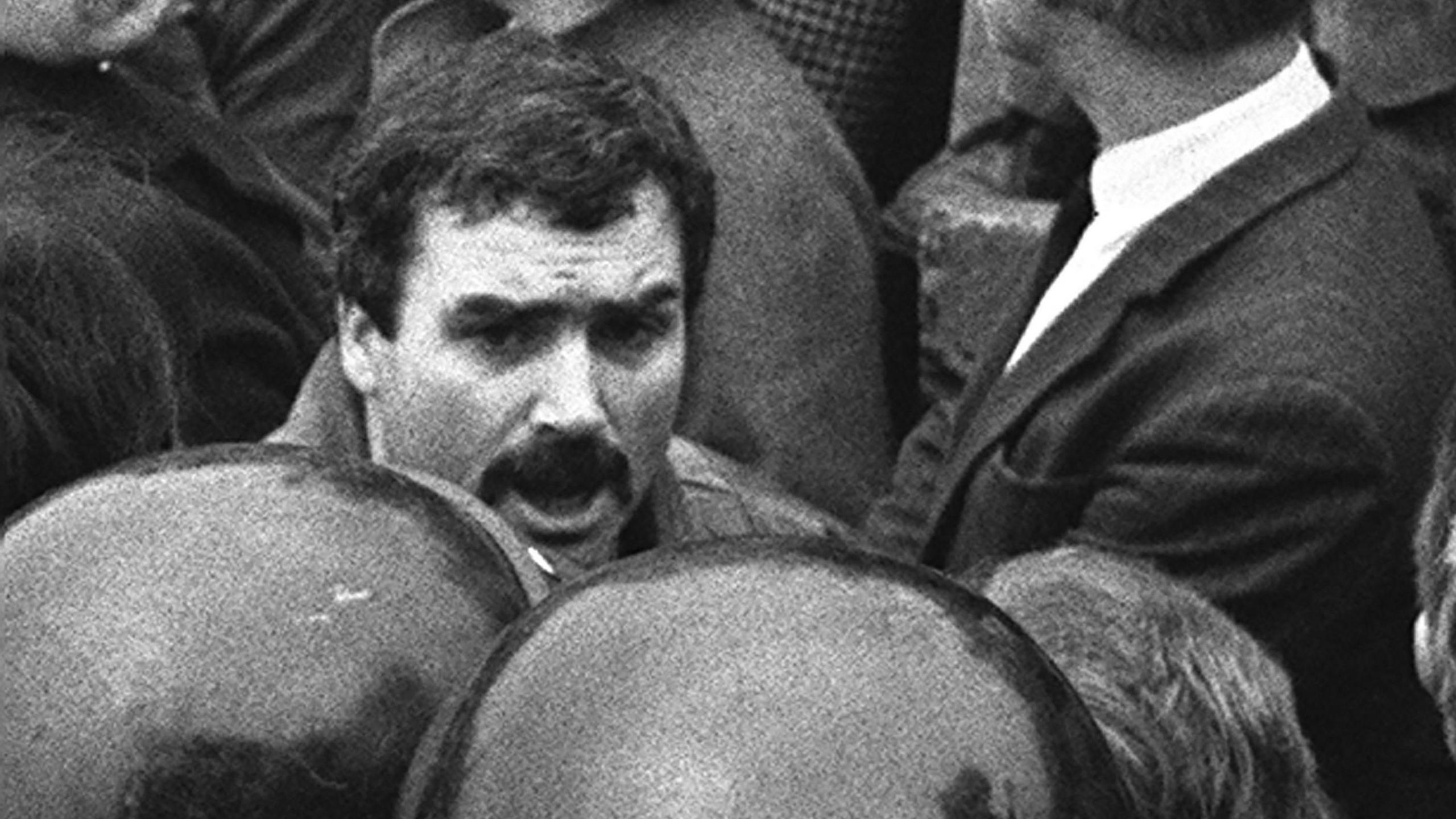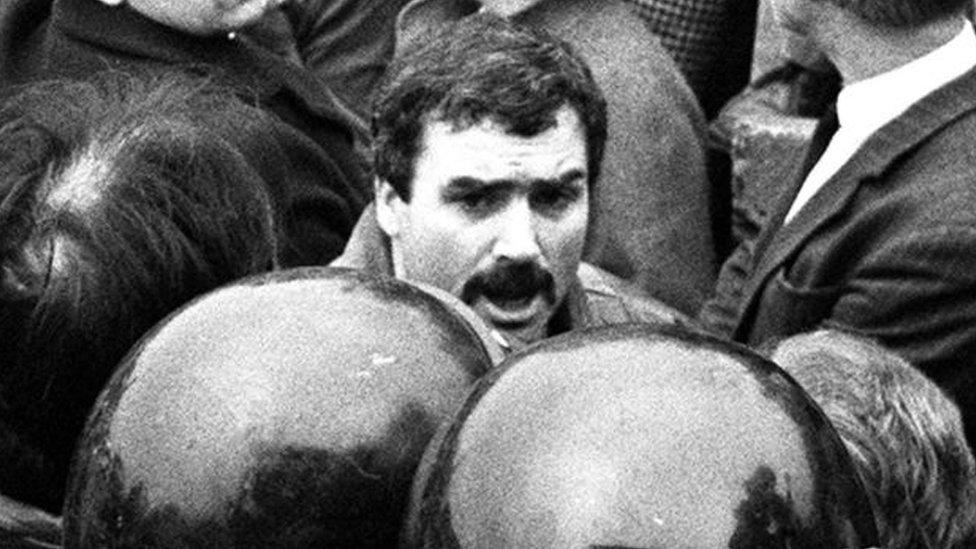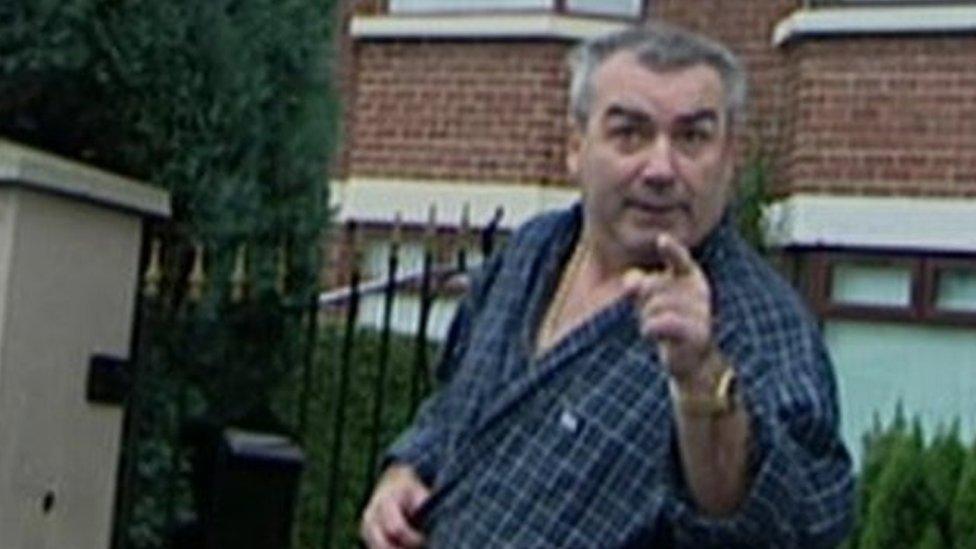MI5 finds new documents on Army's IRA spy

Stakeknife operated as a prized agent for the British Army while a member of the IRA’s internal security unit during the 1980s
- Published
The security service MI5 has discovered hundreds of new documents on the agent in the IRA, known as Stakeknife, which were not previously disclosed to a major police investigation.
Operation Kenova has spent years examining the activities of the agent, who was Belfast man Freddie Scappaticci, at a cost of £40m.
It issued an interim report earlier in 2024.
The head of Operation Kenova, Sir Iain Livingstone, said the latest development was "of great concern”.
Mr Scappaticci, who died in 2023, operated as a prized agent for the Army while a member of the IRA’s internal security unit during the 1980s.
He has been linked to at least 14 murders.
In 2016, Operation Kenova was set up to investigate and asked MI5, amongst others, for all material it held about him.
Part of its investigation looked at the conduct of Stakeknife’s Army handlers and police Special Branch, as well as MI5.
Based on files submitted by Operation Kenova, the Public Prosecution Service (PPS) decided in February there was insufficient evidence to charge anyone.
Operation Kenova: Q&A
- Published8 March 2024
The sound that signalled death for IRA 'informers'
- Published5 March 2024
MI5 first informed Operation Kenova in April that it had uncovered material which was not initially handed over.
It is believed that MI5 told investigators it was found while its archive was being digitised.
Further discoveries were made in July and searches are ongoing.
Sir Iain has written to Northern Ireland Secretary Hilary Benn to inform him of the situation.
'Significant new material'
Sir Iain stated the material, which was still being fully appraised, ran to hundreds of pages and was not "by any stretch insignificant”.
“Our initial assessment is that the files contain significant new material which appears to point to new investigative leads not previously known," he said.
“Importantly the material does not indicate further murders of individuals that involved the agent Stakeknife.
“However, the material does appear to cast doubt on some of the documents and witness evidence obtained by Kenova and some statements made in the interim report, including information provided by the security service around the dates when they became aware of the agent Stakeknife.”
Sir Iain has also made the PPS aware of developments.

Baroness Nuala O'Loan said MI5 had behaved "appallingly"
Baroness O’Loan, a former police ombudsman who is a member of Kenova’s steering committee, accused MI5 of behaving “appallingly”.
She said the material may change what victims’ families had previously been told.
“MI5 should never have put the families in this position," she said.
“This could be retraumatising... I think it is absolutely disgraceful.”
Kenova’s final report was due to be published before Christmas but now it will be delayed until 2025 whilst the new material is assessed.
Jon Boutcher, chief constable of the Police Service of Northern Ireland (PSNI) and the former head of Operation Kenova, said it was "unacceptable that MI5 continue to provide material to the Operation Kenova Team so long after they undertook to have given full access to Kenova of all the material they held".
“The fact that this information continues to be provided to the Operation Kenova Team after the Public Prosecution Service have directed on the files submitted to them will cause further upset to the families who had already waited many years to find out what happened to their loved ones," he said.
Mr Boutcher said he was "confident" Sir Iain would "ensure all the material is fully assessed and will liaise closely with the Director of the Public Prosecution Service to determine if any further direction is necessary".
A UK government spokesperson said: “Our deepest sympathies remain with all the families who lost loved ones during that very dark period in Northern Ireland."
"In the process of digitising wider historical records, additional files that were of relevance to the Kenova investigation were discovered."
“The Security Service made Kenova senior leadership aware of this discovery, and has made this material available for review, at the earliest opportunity – as it has with other appropriate authorities."
“The Security Service continues to cooperate fully with the Kenova investigation, as it has done throughout its proceedings.”
Analysis: Found files rock Kenova
By Peter Taylor, BBC News
The revelation of new information from MI5 nearly eight years after Operation Kenova was established in 2016 came completely out of the blue and rocked Kenova.
Scappattici, the alleged "Golden Egg" of British agents within the IRA, was never brought to justice and died in April 2023, taking his secrets to the grave.
Operation Kenova thought its work was done.
Sir Iain and his predecessor, Jon Boutcher, now chief constable of the PSNI, had been assured that they had been given full access to all MI5 files related to Stakeknife.
This proved not to be the case.

Scappaticci (extreme left of picture) pictured at the 1988 funeral of IRA man Brendan Davison
To date, it’s believed that Kenova has received hundreds of highly sensitive files, all of which are being assessed by Sir Iain’s team.
Their secret content remains under wraps whilst Kenova assesses them
The new files are expected to reveal that MI5’s knowledge of Scappattici went back to the late 1970s when he was first recruited by the Army's clandestine Force Reaction Unit (FRU).
This is in contrast to MI5’s previous position that it only became involved with Stakeknife in 2003 when the Security Service was tasked with rehousing him in England after he had been ‘outed’ and identified, although the government has never confirmed that Scappaticci was Stakeknife following the intelligence services iron rule to “neither confirm nor deny”.
The new files are also believed to have cast new light on Scappaticci’s prominent role within the IRA’s Internal Security Unit - the "nutting squad” - whose brief was to root out British agents and informers, brutally interrogate them and after confessions often elicited through torture, even more brutally ‘execute’ them with a bullet in the back of the head.
Sir Iain’s letter, now posted on Kenova’s website, is likely to cause waves in across the island of Ireland, where over the years successive British governments have desperately tried to establish trust and confidence in the security forces.
To many on both sides of the border, the revelation of the new files will come as no surprise.
Related topics
- Published7 March 2024

- Published11 April 2023

- Published8 March 2024
